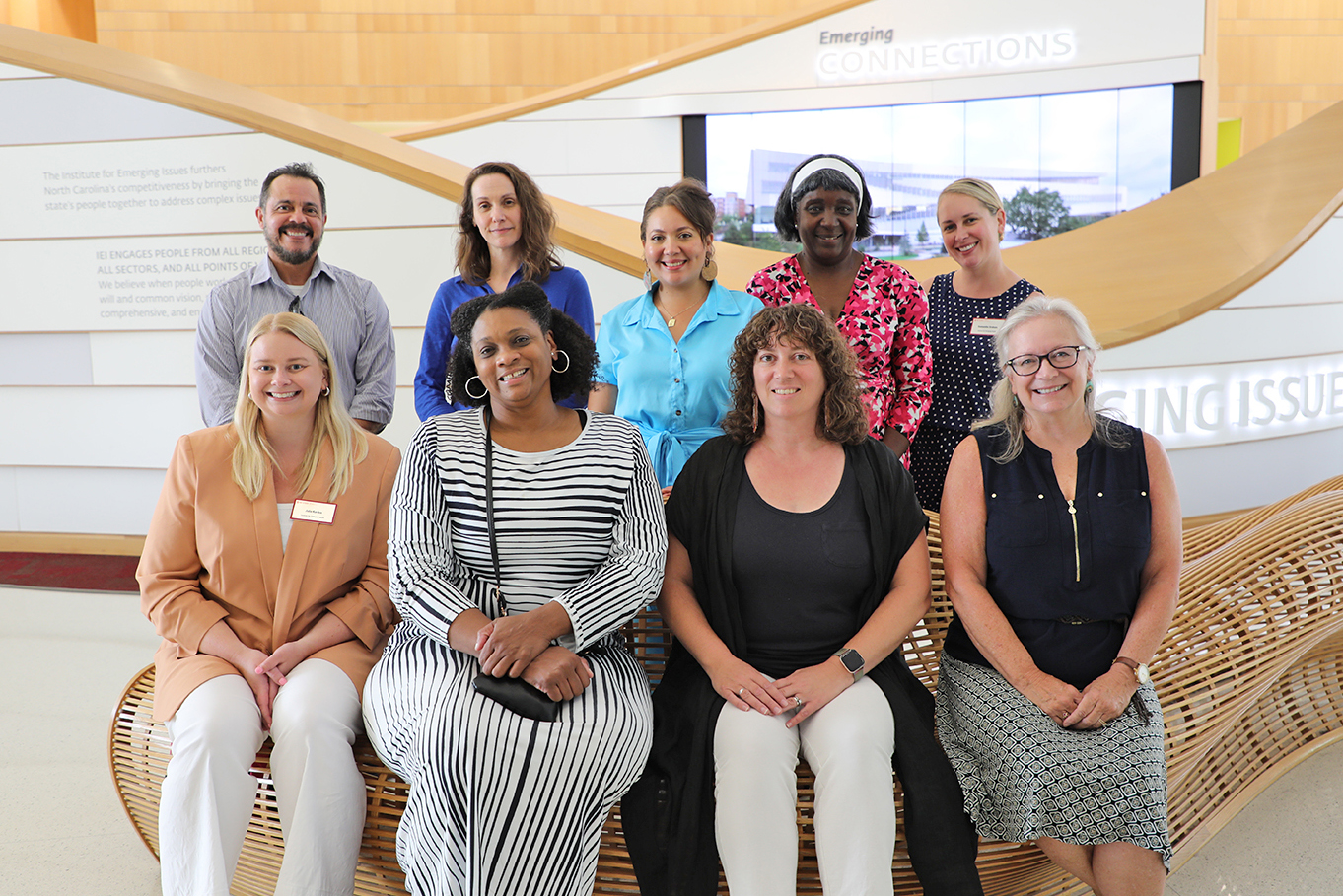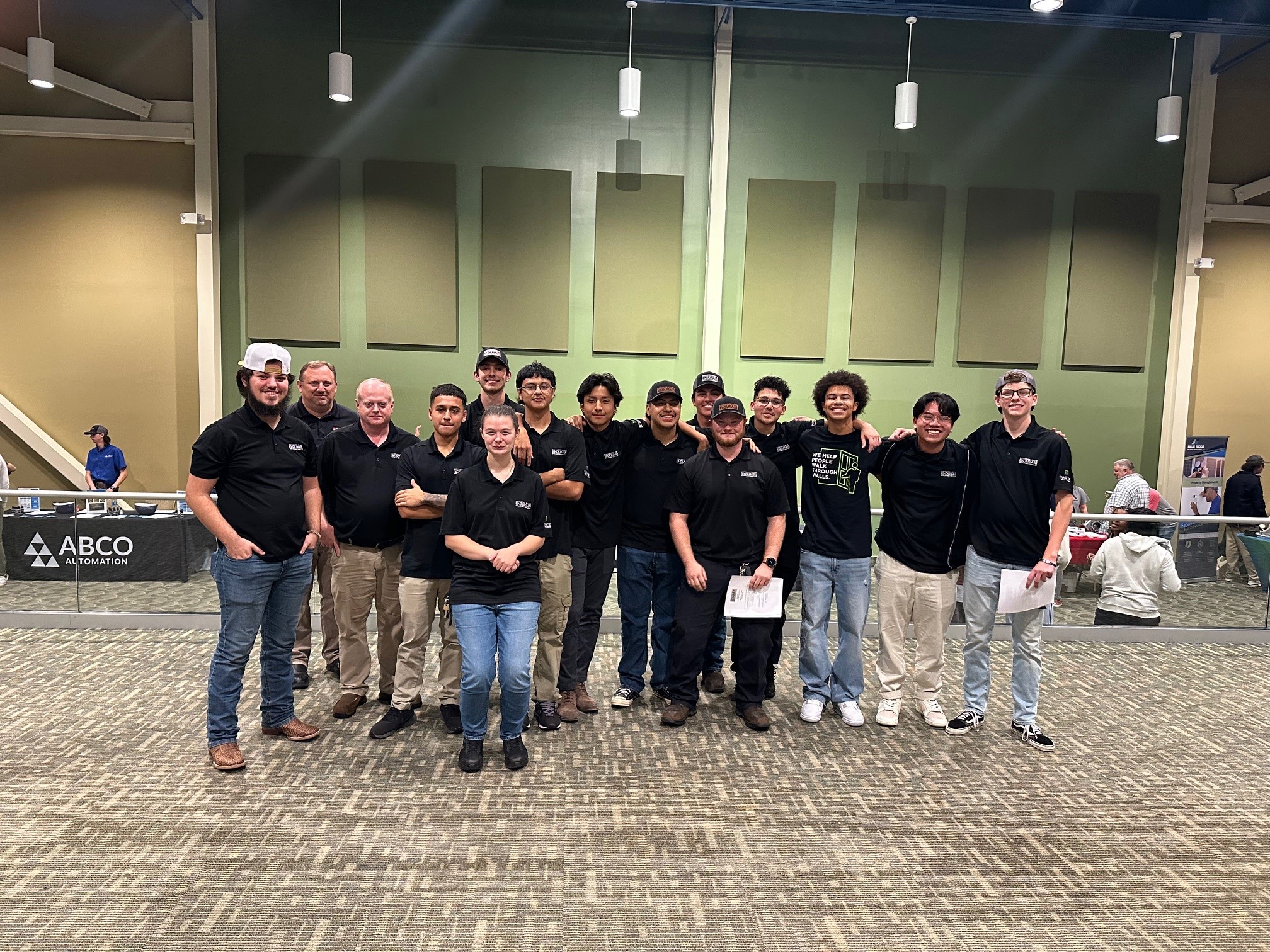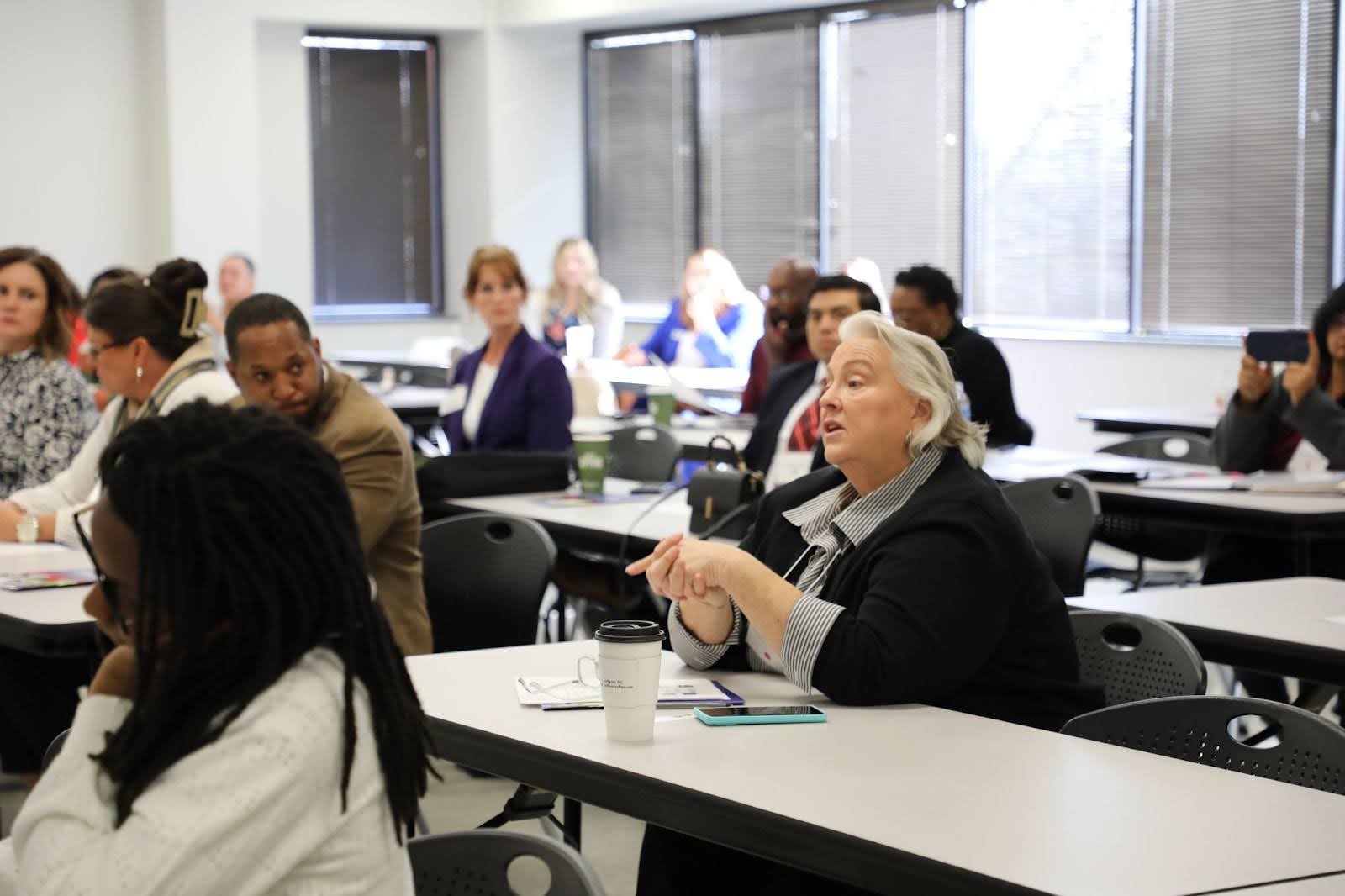Clean Energy, AI and Growth: Guilford County Workforce Leaders Hold Action Meeting on Jobs of the Future
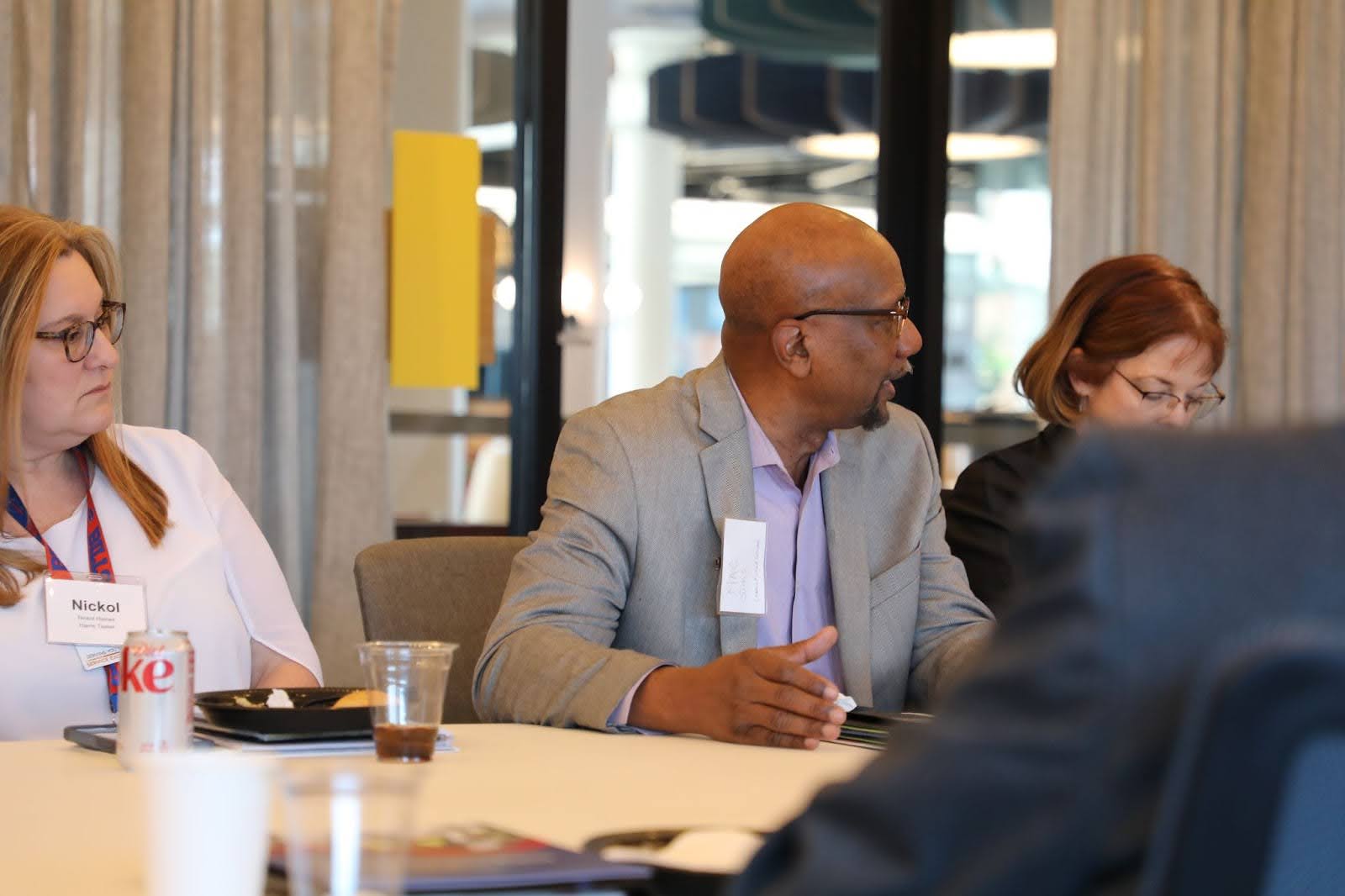
Opportunities, Not Challenges
As High Point City Council member Michael Holmes addressed the variety of workforce, business, nonprofit, government and education leaders in the room, he paused after using the word “challenges.” He much preferred the word “opportunity.”
This sentiment, that Guilford County is ripe for continued growth and workforce opportunities, was the central theme at the “Jobs of the Future: Guilford County Workforce Action Meeting” that took place on March 20 in High Point. The event was organized by GuilfordWorks’ Assistant Director of External Affairs Fred Henry, alongside Guilford Tech Community College’s (GTCC) Vice President of Workforce and Continuing Education Dr. Manuel Dudley. Both men were members of the Talent First Community Cohort Piedmont Triad team and participated in NC State University’s Workforce Development Leadership Initiative where they were among the first in the country to receive the designation of Certified Workforce Developer.
For Henry, the event itself was a product of his and Dr. Dudley’s experience within the cohort and initiative, where they were able to hear and learn about how local economic developers and workforce developers interact across the state.
“I think one of the good things from that training program was really hearing best practices and seeing how we can merge the two [economic development and workforce development],” said Henry.
“Today was about hearing from our stakeholders, hearing what their needs are, and just seeing how we can build on that moving forward to address the industry needs within our region,” said Henry.
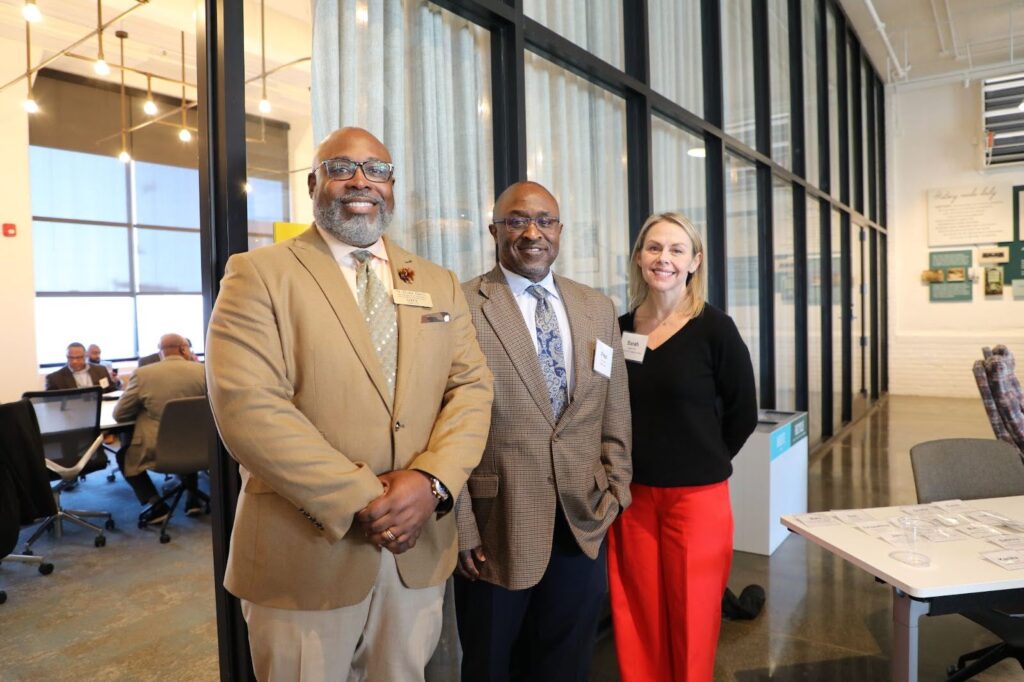
Thinking About Data, Translated to Action
To kickstart the event, attendees heard from Jamie Vaughn, the senior analyst for market intelligence with the NC Department of Commerce’s Labor and Economic Analysis Division. Vaughn painted a data-filled picture of the Guilford County and greater Triad-area labor market, explaining which industries currently have the tightest labor markets and how these trends are quickly changing with the arrival of major tech and manufacturing companies. Additionally, he presented data on regional commuting patterns, automation and artificial intelligence’s (AI) future impacts, as well as survey reports from both workers and employers in regard to workforce preferences since the pandemic.
“For me, the presentation was really validating,” noted Barbie Patterson, director of workforce development at Reading Connections in Greensboro. “We are just always looking to learn how we can improve our programs, make sure they are relevant, and make sure that our programs have the job and career training that is most in-demand.”
Reading Connections originally began as a literacy organization for adults, but has now added programs for teaching English for Speakers of Other Languages (ESOL), family literacy and other programs. One such program is Tour of the Trades, which offers the opportunity for women to “try on” different trade careers through hands-on experiences and related educational instruction. This program is made possible through Reading Connections’ partnership with She Built This City.
“They get a little taste of electrical, carpentry, welding, all those different things so they can find out what they really have an aptitude for and what they really enjoy doing,” explained Patterson.
From there, participants are entered into an apprenticeship program in their chosen field, where they can receive their appropriate credentials and licensing to begin working. Furthermore, many women with young children who enter the program do not have to worry about childcare as a barrier to entry, as it is provided for them while they are taking classes. Reading Connections also provides programming in assistant nursing, manufacturing, early childhood education, and a work-readiness program specific to immigrants and refugees.
“We are helping the community fill the jobs that are needed but are also educating our students in the areas where there is that demand and they are going to find jobs,” said Patterson.
Jobs and Technology of the Future
Dr. Balu Gokaraju is a professor of computation data science and engineering at North Carolina Agricultural and Technical State University where he serves as the principal investigator for Steps4Growth—a 24 million dollar North Carolina-specific project involving 32 counties, 16 community colleges, and a STEM high school.
“We call it a major comprehensive clean energy workforce development project,” said Dr. Gokaraju as he addressed the meeting’s attendees.
The program has had tremendous success, with a total of 188 full-time job placements within energy efficiency, HVAC, solar panel installation, and grid and storage sectors since the program’s inception in 2022. Attendees were able to learn more about the program and the types of skills and credentials that are needed to meet the demands of the clean energy economy.
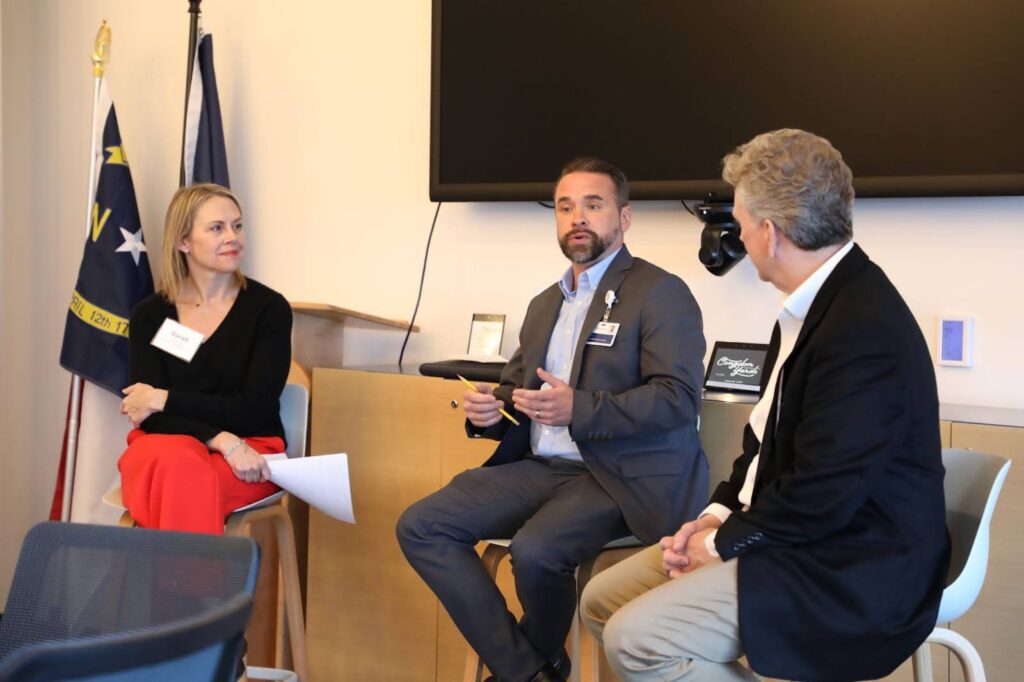
Attendees also heard from Daniel Grigg, workforce development manager at Cone Health, and Steve Brown, senior director of materials research and technical services at Phase Change Solutions. Both discussed how their respective industries have changed over the years, the effects of AI and automation, and how they are recruiting talent and retaining underutilized workers.
For Brown, he is excited about the prospect of AI as a new tool to improve human capabilities. For Grigg, he is working hard to retain talent by requiring that interns are paid, partnering with Family Services of the Piedmont to train some of their clients as medical assistants, and partnering with GuilfordWorks to launch a new clinical apprenticeship program.
As the discussion opened up to the floor, participants were excited to share their own insights on the state of workforce development in Guilford County, and how they see the programs of today impacting the demands of tomorrow’s labor market.
One such person was Chris Huntley, director of workforce initiatives at ShiftED, a nonprofit education organization that works with students from 3rd grade through college. He said that workforce educators, like himself, must embrace automation and AI as a positive change within the job sector.
“As long as you have that upscaling of education and skills, people will never go anywhere,” he said in addressing concerns that these emerging technologies will replace available job opportunities.
As a former CTE educator, Huntley recalled telling his students that automation, robotics, and AI still require humans to ensure that they function correctly.
“There is always going to be someone pushing that button,” he said.
“The Good Times are Here”
From education to nonprofits, to local government and workforce professionals, each person at the meeting echoed a similar message: Guilford County and the Triad region are ready to tackle the complexities of an ever-evolving workforce landscape that promises greater job opportunities and an investment in the industries of tomorrow.
Mac Sims, president of East Greensboro Now and a long-time champion for community development described how, for the first time in 30 years, Guilford County is on the watch list for major companies. He said that although the county had experienced some hard times, the arrival of major tech and manufacturing companies such as Boom, Siemens and Toyota has cemented Guilford County’s foreseeable future as a dominant force for economic development in North Carolina.
“The good times are here!” Sims said, “But how do we meet the challenge? We got all the talent right here in this room to make it happen.”
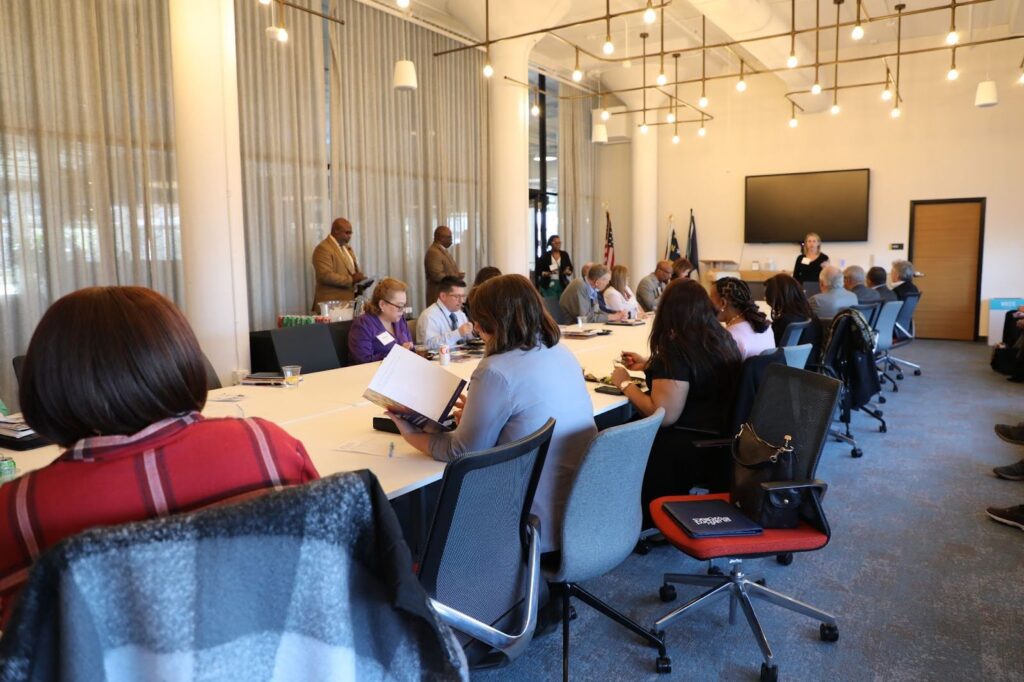
- Categories:
